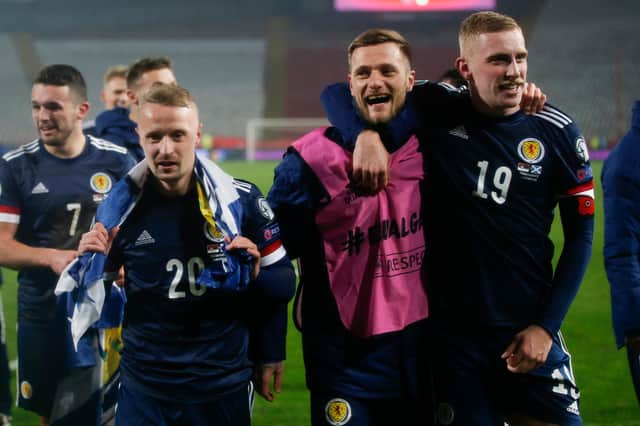Goals will come promises Steve Clarke after successive blanks bring Scots down to earth after Euros play-off success


The manager won’t have any opportunities to work with the players before they meet up again in the Spring. But he believes the difficulties Scotland are having in finding a cutting edge can be solved by staying calmer when chances arise. The Scots will need to hit the ground running next year. After three World Cup qualifying ties – the draw takes place next month – the attention immediately turns to Euro 2020, where they play Czech Republic, England and Croatia.
“The picture can change a lot in five months,” said Clarke. “It’s all about gaining experience, maybe relaxing a little bit more in the final third. I think we had much better chances than Israel, and it was similar in Slovakia.
Advertisement
Hide AdAdvertisement
Hide Ad“We are creating opportunities, we had 30-odd shots on goal in two games. We are getting there.
“It is a learning process and the education of the players will continue. They’ll realise it’s so important to get the goal that puts you in front.
“It’s always difficult to chase the game at this level, you maybe snatch at chances a little bit,” he added. “But I’m looking at the positivity. The effort and endeavour we saw from the players over the three games was there, it was just a bit of quality and execution in the final third. The more chances we give ourselves to score goals – I believe they will come.”
Clarke has unearthed a first-choice centre forward in Lyndon Dykes, who has struck twice in seven games since opting to play for Scotland over Australia. Ryan Christie and John McGinn are also willing accomplices.
But the Scots have struggled to score goals – just three in their last six games under Clarke, who also has Oli McBurnie – yet to open his international account after 15 caps – and the currently rusty Leigh Griffiths to call upon.
Dundee United’s Lawrence Shankland has been used sparingly and Hearts striker Steven Naismith is currently out of favour.
A message from the Editor:Thank you for reading this article. We're more reliant on your support than ever as the shift in consumer habits brought about by Coronavirus impacts our advertisers.If you haven't already, please consider supporting our trusted, fact-checked journalism by taking out a digital subscription - https://www.scotsman.com/subscriptions
Comments
Want to join the conversation? Please or to comment on this article.